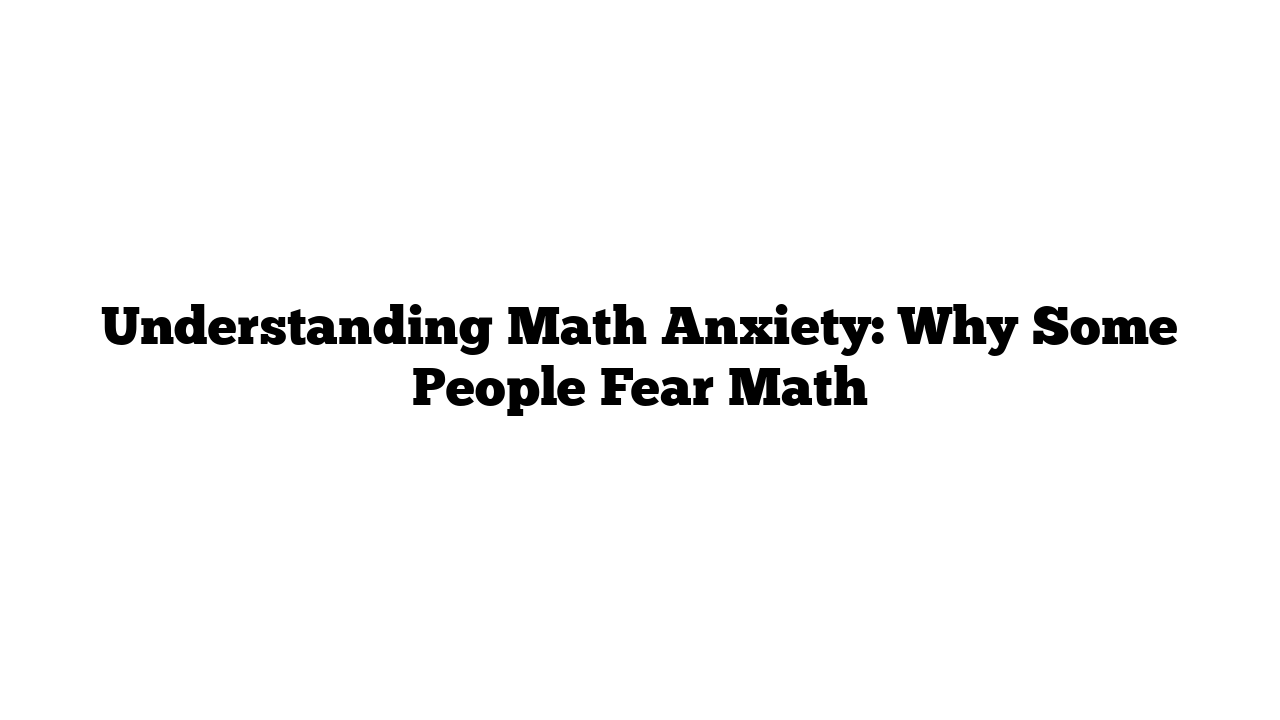Are you scared of math? You’re not alone! Many people feel anxious when it comes to math, but why is that? Let’s explore the reasons behind this fear and how to overcome it.
What Is Math Anxiety?
Math anxiety is a feeling of tension or fear that some people experience when solving math problems. When faced with math, you might feel symptoms like:
- A racing heart
- Breathlessness
- Sweaty palms
- A tight feeling in your stomach
These feelings can make you want to avoid math altogether, but it’s essential to understand that this anxiety doesn’t mean you’re bad at math. In fact, you might be quite good at it! The problem is that anxious thoughts can make it difficult for your brain to focus on solving math problems.
The Science Behind Math Anxiety
Our brains have something called working memory, which is like a mental space where we solve problems. When doing math, we need a lot of this space to think clearly. However, if you have math anxiety, much of this space gets filled with anxious thoughts about making mistakes. This leaves less room for solving actual math problems, making it harder to perform well.
Why Does Math Anxiety Happen?
The exact reasons for math anxiety aren’t entirely understood, but some studies suggest that past negative experiences can play a significant role. For example:
- Strict Teachers: A teacher who often criticizes a student’s math skills can lead to fear and anxiety about the subject.
- Parental Influence: If a parent views math as difficult or scary, their child might adopt the same beliefs.
- Pressure of Tests: High-pressure situations, like timed tests, can increase anxiety. The fear of failing or making mistakes can make anyone nervous, especially when being good at math is seen as a sign of intelligence in some cultures.
Overcoming Math Anxiety
The good news is that math anxiety can be managed! Here are some tips to help you feel more confident:
1. Change Your Mindset
Adopting a growth mindset is crucial. Believe that you can improve with effort and practice. This attitude can help reduce anxiety and increase your ability to learn.
2. Write Down Your Thoughts
Before a test, write down your anxious thoughts. This can help clear your mind and free up space in your working memory for math problems.
3. Relaxation Techniques
Take a moment to breathe deeply and relax your muscles before starting a test. A short walk can also help ease tension.
4. Practice Regularly
Just like learning a sport or a musical instrument, math gets easier with practice. Try to work on math problems every day, even if it’s just a few. Remember, everyone learns at their own pace, so be patient with yourself.
5. Don’t Compare Yourself to Others
Focusing on your progress rather than comparing yourself to others can help reduce anxiety. Each person has their unique learning journey.
Fun Facts About Math Anxiety
Did you know that around 20% of people suffer from math anxiety? Even some of the brightest minds in history, like Albert Einstein, faced challenges with math at different points in their lives.
Final Thoughts
If you ever feel anxious about math, remember that you’re not alone, and there are ways to cope. By changing your mindset, practicing regularly, and using relaxation techniques, you can overcome your fear of math. Keep going, and you will become more confident over time!
